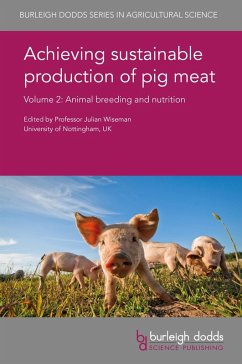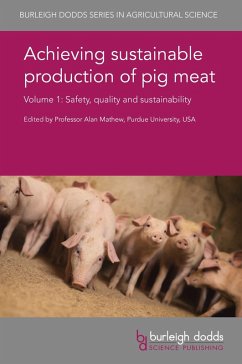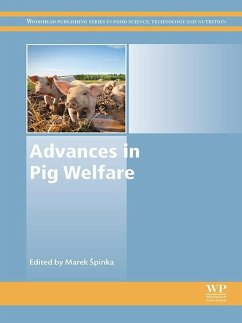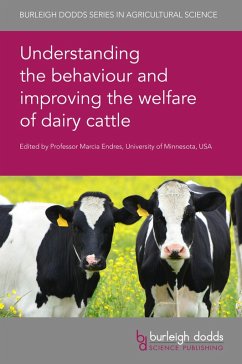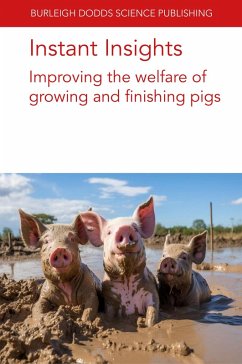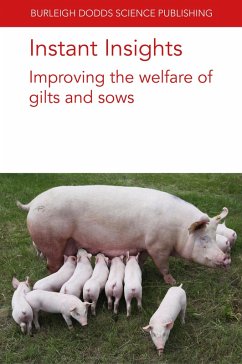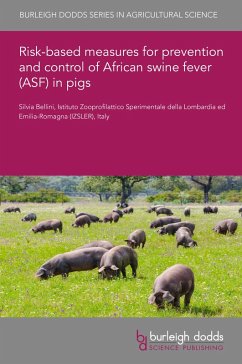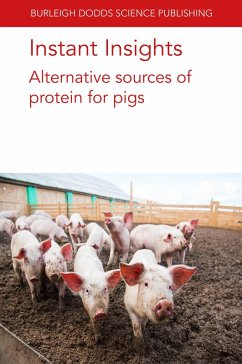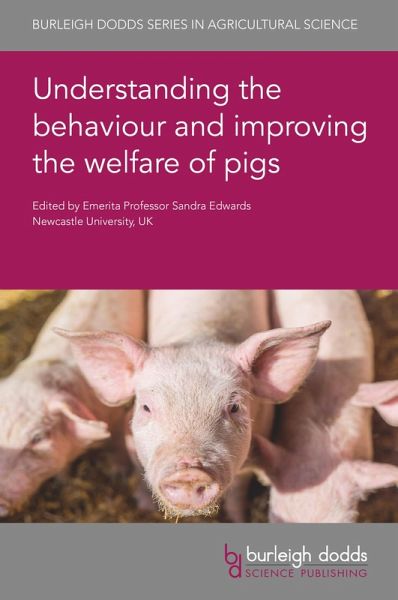
Understanding the behaviour and improving the welfare of pigs (eBook, ePUB)
Versandkostenfrei!
Sofort per Download lieferbar
144,95 €
inkl. MwSt.

PAYBACK Punkte
72 °P sammeln!
"The book has excellent chapters that are actually too good to 'just' be book chapters. The quality of some chapters far bypasses some of the existing peer-reviewed literature reviews that are accessible online. I therefore encourage researchers to cite the book chapters and to use them as a reference work for research ideas and as guidance to improve research practices." (Dr Irene Camerlink, Institute of Genetics and Animal Biotechnology, Polish Academy of Sciences, Poland)With growing concern from consumers and regulatory agencies about the welfare of farmed animals such as pigs, the livesto...
"The book has excellent chapters that are actually too good to 'just' be book chapters. The quality of some chapters far bypasses some of the existing peer-reviewed literature reviews that are accessible online. I therefore encourage researchers to cite the book chapters and to use them as a reference work for research ideas and as guidance to improve research practices." (Dr Irene Camerlink, Institute of Genetics and Animal Biotechnology, Polish Academy of Sciences, Poland)
With growing concern from consumers and regulatory agencies about the welfare of farmed animals such as pigs, the livestock sector must assess how animal welfare can be improved whilst ensuring livestock production remains economically and environmentally sustainable.
Understanding the behaviour and improving the welfare of pigs is a comprehensive review of key research in this important area. This collection reviews genetic and developmental factors affecting pig behaviour and current welfare issues at different production stages, as well as specific issues such as tail biting and castration. The book concludes with an assessment of ways to measure welfare, including techniques to monitor pig behaviour.
With its distinguished editor and international team of expert authors, Understanding the behaviour and improving the welfare of pigs will be a standard text for university researchers in pig/swine and veterinary science as well as ethology. It will also be a key reference for government and other agencies involved in regulating and monitoring farm animal welfare, as well as farmers and companies involved in pig production.
With growing concern from consumers and regulatory agencies about the welfare of farmed animals such as pigs, the livestock sector must assess how animal welfare can be improved whilst ensuring livestock production remains economically and environmentally sustainable.
Understanding the behaviour and improving the welfare of pigs is a comprehensive review of key research in this important area. This collection reviews genetic and developmental factors affecting pig behaviour and current welfare issues at different production stages, as well as specific issues such as tail biting and castration. The book concludes with an assessment of ways to measure welfare, including techniques to monitor pig behaviour.
With its distinguished editor and international team of expert authors, Understanding the behaviour and improving the welfare of pigs will be a standard text for university researchers in pig/swine and veterinary science as well as ethology. It will also be a key reference for government and other agencies involved in regulating and monitoring farm animal welfare, as well as farmers and companies involved in pig production.
Dieser Download kann aus rechtlichen Gründen nur mit Rechnungsadresse in A, D ausgeliefert werden.




